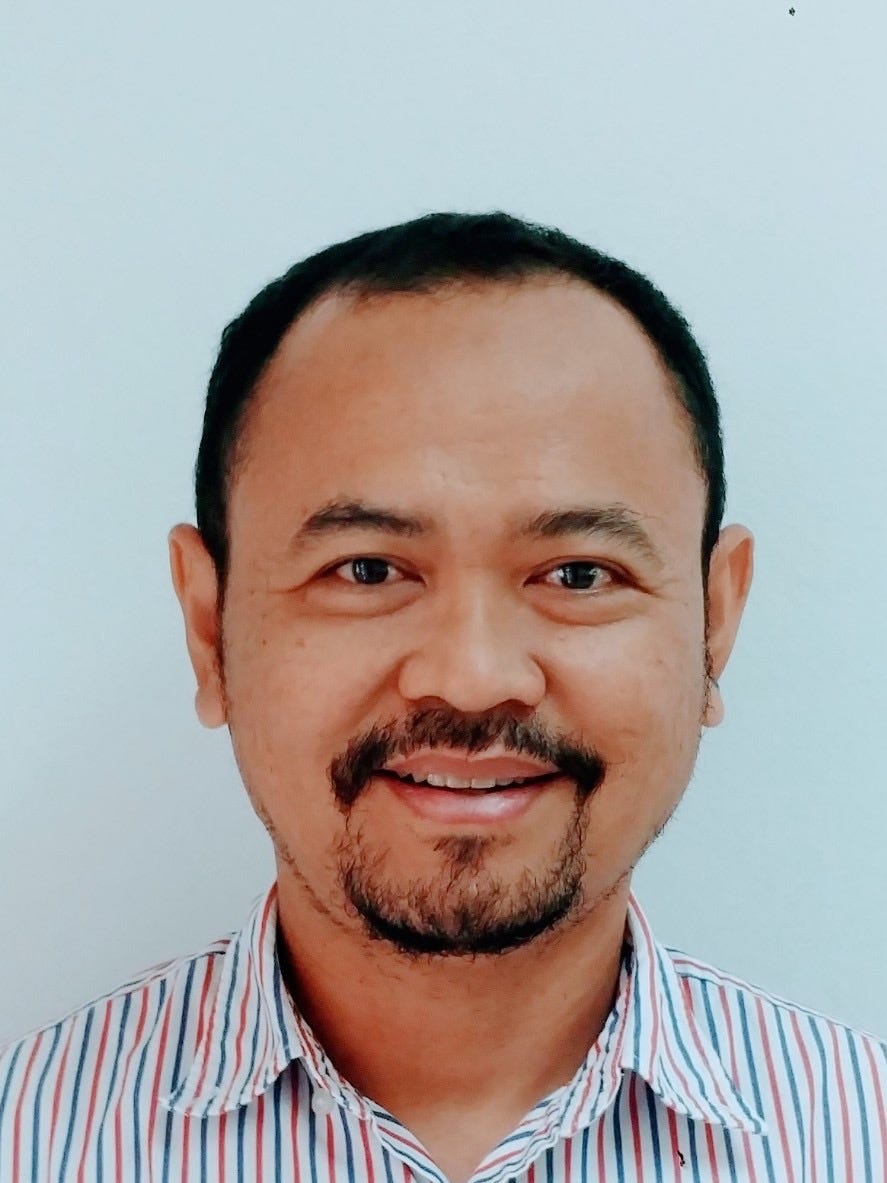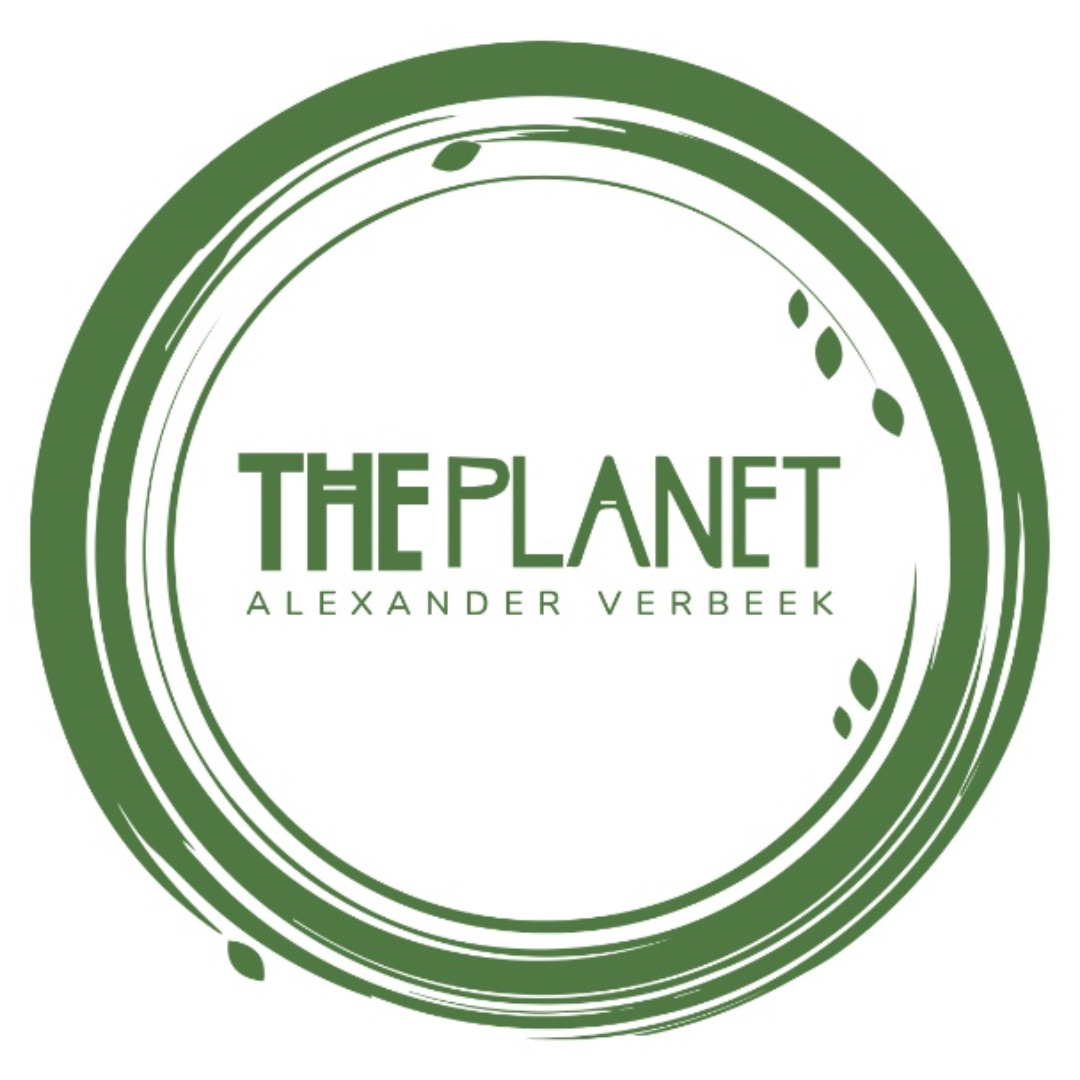The wastewater podcasts, part 4: South and Southeast Asia
An interview with Hendra Gupta (manager of the Regenerative Sanitation Hub project, Asian Institute of Technology, Bangkok, Thailand).
This is part 4 in a series of blogs about wastewater that I will publish before 24 December. All are based on podcast interviews I did in the past months, in cooperation with UN-Habitat, with seven experts worldwide.
We are midway through the series of articles comparing wastewater management experiences in different countries and regions. The virtual worldwide journey continues from Ghana via Trinidad and Kampala; we have arrived in Bangkok, Thailand.
For today's article, I will use a bit of a different structure than the previous ones since I received some questions about Sustainable Development Goals (SDGs). So let's first go there, and then in the second part of this article, we go to the fourth podcast.
The Sustainable Development Goals
I started the fourth podcast to remind listeners why we focus on wastewater. Why don't we focus on food, energy, or maybe on improving our health, protecting the environment, or other important issues that all appear in my regular blogs throughout the year?
Each of these issues is important, but wastewater belongs to the same priorities because all these aspects are related. Wastewater management is essential for our health and environment, just as it relates to food production or energy. Therefore, wastewater is mentioned explicitly in Agenda 2030, the priorities that all countries agreed upon seven years ago as a guiding framework for the near future.
And wastewater needs more attention because it is not a typical media favorite. Perhaps we should someday find a better word for it, just like the World Health Organization recently decided that Monkeypox will, from now on, be called MPOX. The term 'waste' makes it sound unimportant, unlike, for instance, drinking water, since we all realize the importance of drinking. The focus should be on the water and not on waste. Wastewater is, first of all, water, something we all need. And much of what we readily refer to as 'waste' in wastewater is valuable once it is recycled and reused. We should also increase the portion of wastewater flows safely treated because the wastewater you don't treat is simply wasted water.
And therefore, it's hard to disagree with the logic of Agenda 2030 and the Global Goals of improving the water quality in our rivers and lakes by reducing pollution. I wrote about the Agenda 2030 history and the Global Goals in the first of this series of wastewater articles. In the first podcast, you also heard Jerry Asumbere, who impressed me with the quality of data collection and monitoring in Ghana.
Goals, targets, and indicators
I didn't yet get into the targets and indicators. The beauty of Agenda 2030 is the detailed description of what should be achieved, how it should be measured, and how these worldwide challenges are interconnected.
Goals
So I had mentioned that one of the 17 Sustainable Development Goals, and you will remember that number 6 is about water, officially formulated as:
"Ensure availability and sustainable management of water and sanitation for all."
Targets
Each of the 17 SDGs has several targets (169 in total). For example, the 'water' SDG6 has six targets (and two sub-targets). The third of these is 6.3, defined as:
"By 2030, improve water quality by reducing pollution, eliminating dumping and minimizing release of hazardous chemicals and materials, halving the proportion of untreated wastewater and substantially increasing recycling and safe reuse globally".
Indicators
And as the last level of detail that all countries agreed upon in 2015, there are 'indicators.' So, for example, target 6.3 has two indicators:
6.3.1: The proportion of domestic and industrial wastewater flows safely treated.
6.3.2: The proportion of bodies of water with good ambient water quality.
So that's the structure; it looks complicated, but once you know the UN-speak of goals, targets, and indicators, it becomes pretty logical. You can easily explore other global challenges we need to solve. For example, yesterday's news about the result of the biodiversity COP 15 in Montreal is directly related to Agenda 2030. Let's look at the protection of forests; you will find this in indicator 15.1.1. which is measured by the forest area as a proportion of the total land area. It falls under target 15.1 (let's summarize that one as conservation of inland ecosystems) that falls under Sustainable Development Goal 15 (in short: to stop biodiversity loss).
Moving forward on just one indicator or target, or even moving forward towards reaching just one of the 17 goals, is hardly adequate if it isn't matched with progress on the other goals. Our planet and development are like a house of cards; we need to protect, preserve and strengthen all of them since they are all interconnected, which asks for an enormous amount of coordination and cooperation between countries, institutions, corporations, NGOs, and individuals.
The wastewater podcasts
And that's where these podcasts come in that I make in cooperation with UN-Habitat. It is a small piece of the puzzle in a giant jigsaw of our main priorities for this planet that neatly fits into a more comprehensive coordinated approach. We want to improve wastewater monitoring and data collection, and we want all levels of government and all entities involved to work together. And we need to find ways to finance it and focus on many other aspects like the technology required. The virtual global journey we started helps to share knowledge on the same subject with experts that live and work in different countries. They face challenges that are sometimes familiar to those in other regions and are occasionally unique to their area. And all of them are committed to Agenda 2030, SDG6, and primarily target 6.3.
And with that background, let's get to the fourth podcast. I also noticed that at each episode, the number of live listeners increased; I hope to do some more podcasts next year.
Wastewater in South and Southeast Asia
In the fourth podcast on wastewater, we had two guests. Hendra Gupta and Professor Thammarat Koottatep. Hendra Gupta has many years of experience as a project manager in Sanitation and Environmental Management in Southeast Asia and is currently the Project Manager for the Regenerative Sanitation Hub at the Asian Institute of Technology (AIT) Thailand. Professor Thammarat Koottatep also works at the AIT, Environmental Engineering and Management, Marine Plastics Abatement, Department of Energy, Environment and Climate Change.
Southeast Asia is making significant progress in wastewater treatment. Still, it faces tremendous challenges like a growing population and rapid urbanization. In addition, it has to deal with the higher volumes of waste that go hand in hand with growing prosperity. Hendra Gupta has worked with centralized wastewater treatment plants and a decentralized approach, which has become his favorite for many situations in South and Southeast Asia.
He finds the decentralized systems ideal for filling the gap between the sizeable centralized wastewater plants that require proper financing and a system to collect fees and, at the smallest scale, individual septic tanks for households. He got involved some 20 years ago when a community of some 40 families needed a decentralized system for wastewater treatment before the disposal of the effluent into the river.
Hendra doesn't believe in one system catches-all approach. Much depends on the government's national, provincial and municipal commitment. For a large-scale treatment plant, it is essential to have support from the national government to secure the funding and the personnel capacity for planning and execution of the plans. Often a decentralized approach proves to be better, but sometimes outside pressure changes the preferred method. For instance, in tourist areas where the tourists expect not to see any trace of wastewater in the beach or nature areas they visit.
In their motivations for starting to work on wastewater, both Hendra Gupta and Professor Thammarat Koottatep mention their love for the beautiful environment where they grew up in Yogyakarta and Chiang Mai. Thammarat remembers how the canals were polluted in his beautiful city of Chiang Mai, a popular tourist destination. This was caused by households and many tourists whose waste was discharged untreated into the water. It motivated him to study engineering and focus on wastewater.
Nature-based solutions to treat wastewater
Like Hendra, his first preference is not to opt for the fancy, latest, and most expensive technology like in western countries. Instead, he favors natural treatment systems, so nature-based solutions to treat the wastewater and at the same time create green areas like forests or gardens. In tropical developing countries, Thammarat favors alternative approaches to treating wastewater; they are less expensive and less complicated.
There is always the risk that once an expensive, complicated wastewater treatment plant has been built, there isn't enough know-how or financing to keep it functioning. There are many examples of failed large-scale projects in Southeast Asia and Africa. He mentioned that in Western countries, there is usually a fee; for instance, for every 100 cubic meters of water you receive, you pay for 80 cubic meters of wastewater. But these payment systems are often not in place in Southeast Asia.
Data and monitoring challenges
We also discussed the importance of collecting data for proper monitoring in the interview. It is an issue where there could be sensitivities since it is easily seen as someone checking someone else's work. Hendra hastened to say that this doesn't mean we don't need more data; monitoring is essential. But it is complicated since, in many countries in South and Southeast Asia, there is not a single agency responsible. For instance, the Ministry of Public Works is responsible for the wastewater of households, while the wastewater from industries is the responsibility of the Ministry of Industry.
Unlike the previous podcasts, where most of the speakers would have l liked to see more data, in Southeast Asia, there are often different sets of data available from several sources, which raises the question of which dataset is the most reliable one. So it would help enormously if one single agency had full responsibility for all wastewater and sanitation policies.
Asked about the aim to reach the wastewater targets of Agenda 2030, Thammarat fears that it won't be possible to get to that level in time. He believes that more campaigns are needed to convince people about the importance of treating wastewater. Many people believe that all that is required is access to clean toilets, but they are unaware of the importance of proper wastewater treatment. It is clearly needed for better public health in Thailand.
Tomorrow, our virtual worldwide wastewater journey continues.
Comments are always welcome:
And subscriptions too:
You may also like:










What stuck out for me in this one were nature-based solutions and how difficult data gathering is. Thank you for explaining what the relevant SDGs are and for listing the goals, targets, and indicators. I always feel a bit lost when all those come up. I hope they find a way to convince the relevant people that wastewater treatment is crucial. It sounded like people getting really sick was not reason enough.